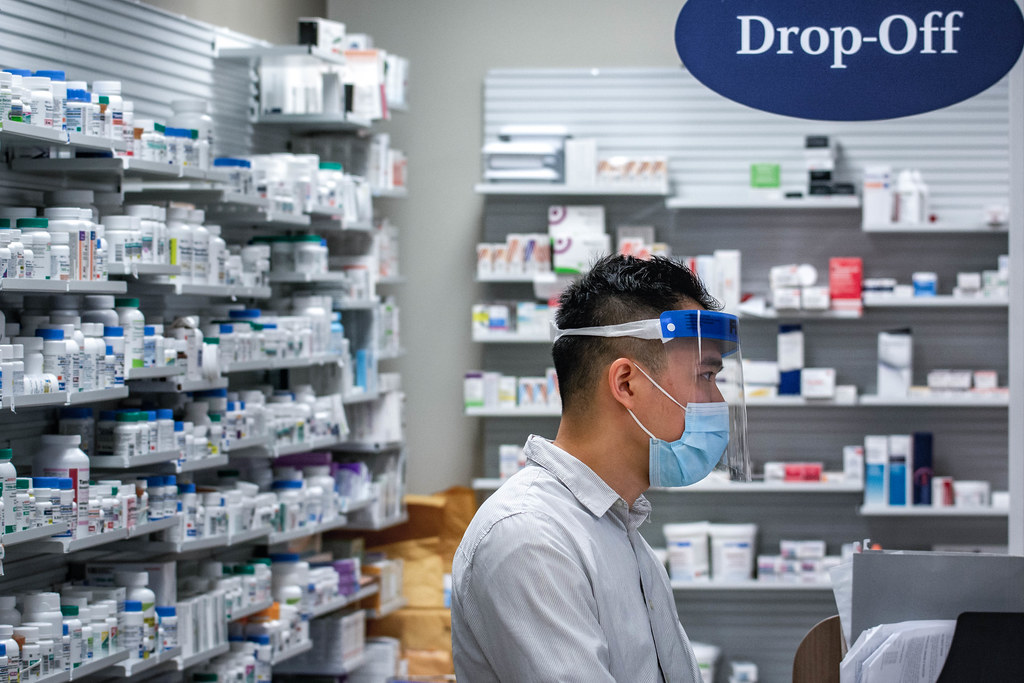In the world of healthcare, one size does not fit all. Each individual’s medical needs are unique, and sometimes, standard medications just won’t do the trick. This is where compounding pharmacies come into play. Compounding pharmacies are specialized facilities that can create custom medications tailored to your specific needs.
Whether you’re allergic to certain ingredients, require a different dosage form, or need a discontinued medication, compounding pharmacies can help. In this article, we will explore what compounding pharmacies are, why they are important, and how you can easily locate your nearest compounding pharmacy when the need arises.
Understanding Compounding Pharmacies
Before diving into the process of locating a compounding pharmacy, it’s essential to understand what they do and why they are valuable.
What Is Compounding?
Compounding is the art and science of preparing customized medications to meet individual patients’ unique needs. Find a compounding pharmacy near me that can adjust the strength, dosage form, and even the flavor of a medication. Compounding pharmacists work closely with healthcare providers to create medications that are tailored to a patient’s specific requirements.
When Is Compounding Necessary?
Compounding becomes necessary when standard medications do not suit a patient’s needs for various reasons, such as:
- Allergies: If a patient is allergic to certain ingredients commonly found in commercial medications, a compounding pharmacy can create a formula without those allergens.
- Dosage Adjustments: Some patients may require a medication in a strength or dosage form that is not commercially available. Compounding pharmacies can customize the dosage to meet these requirements.
- Flavor Preferences: Children, in particular, may have difficulty taking medications due to their taste. Compounding pharmacies can add flavors to make them more palatable.
- Discontinued Medications: Occasionally, pharmaceutical companies discontinue specific medications. Compounding pharmacies can recreate these discontinued medications when necessary.
- Combination Medications: Patients who require multiple medications may benefit from having them combined into a single dosage form for convenience and improved adherence.
The Importance of Compounding Pharmacies
Compounding pharmacies play a crucial role in healthcare for several reasons:
- Personalized Treatment: They provide personalized treatment options for patients with unique medical needs, improving patient outcomes and quality of life.
- Allergy-Friendly Medications: Patients with allergies to certain ingredients can still receive necessary medications without the risk of allergic reactions.
- Pediatric and Geriatric Care: Compounding allows for customized medications that are easier for children and the elderly to take, enhancing patient compliance.
- Access to Discontinued Medications: Patients who rely on discontinued medications can continue their treatment through compounding pharmacies.
Finding Your Nearest Compounding Pharmacy
Now that we understand the significance of compounding pharmacies, let’s explore how to locate one near you.
1. Consult Your Healthcare Provider
The first step in finding a compounding pharmacy is to consult with your healthcare provider. They can recommend a compounding pharmacy that best suits your needs and provide you with a prescription for the compounded medication if necessary. Your healthcare provider’s guidance is invaluable in ensuring that you receive the right treatment.
2. Search Online Directories
Several online directories and resources can help you locate compounding pharmacies in your area. Websites like “Find a Compounding Pharmacy” or the “International Academy of Compounding Pharmacists (IACP)” offer search tools that allow you to find nearby compounding pharmacies based on your location. Simply enter your ZIP code or city, and you will receive a list of options.
3. Check with Local Pharmacies
If you’re unable to find a compounding pharmacy through online directories, consider contacting your local pharmacies. While not all standard retail pharmacies offer compounding services, some may have affiliations or partnerships with compounding pharmacies. They can provide you with recommendations or direct you to the nearest compounding pharmacy.
4. Use Mobile Apps
In today’s digital age, there are mobile applications available for virtually every need. Some healthcare apps offer features that help you locate nearby pharmacies, including compounding pharmacies. Simply download a healthcare app, enable location services, and use the search function to find compounding pharmacies in your vicinity.
5. Ask for Recommendations
Don’t hesitate to ask friends, family, or support groups for recommendations. Chances are, someone you know has needed the services of a compounding pharmacy before and can provide valuable insights. Personal recommendations can help you feel more confident in your choice.
6. Verify Licensing and Credentials
Once you have identified potential compounding pharmacies, it’s essential to verify their licensing and credentials. Ensure that the pharmacy is accredited by a recognized organization like the Pharmacy Compounding Accreditation Board (PCAB). This accreditation ensures that the pharmacy meets high standards of quality and safety in compounding medications.
7. Communicate Your Needs
When you contact a compounding pharmacy, be sure to communicate your specific needs clearly. Discuss your medication requirements, including dosage forms, strengths, and any allergies or sensitivities you have. A reliable compounding pharmacy will take the time to understand your needs and provide you with a customized solution.
Conclusion
Compounding pharmacies play a vital role in providing personalized healthcare solutions to patients with unique medical needs. Whether you require customized medications due to allergies, dosage adjustments, or discontinued medications, compounding pharmacies can help meet your requirements. Locating your nearest compounding pharmacy is a straightforward process that involves consulting your healthcare provider, using online directories, checking with local pharmacies, using mobile apps, asking for recommendations, and verifying the pharmacy’s credentials. By taking these steps, you can ensure that you receive the tailored medications you need to improve your health and well-being. Remember, when it comes to healthcare, customization matters, and compounding pharmacies are here to provide just that.

